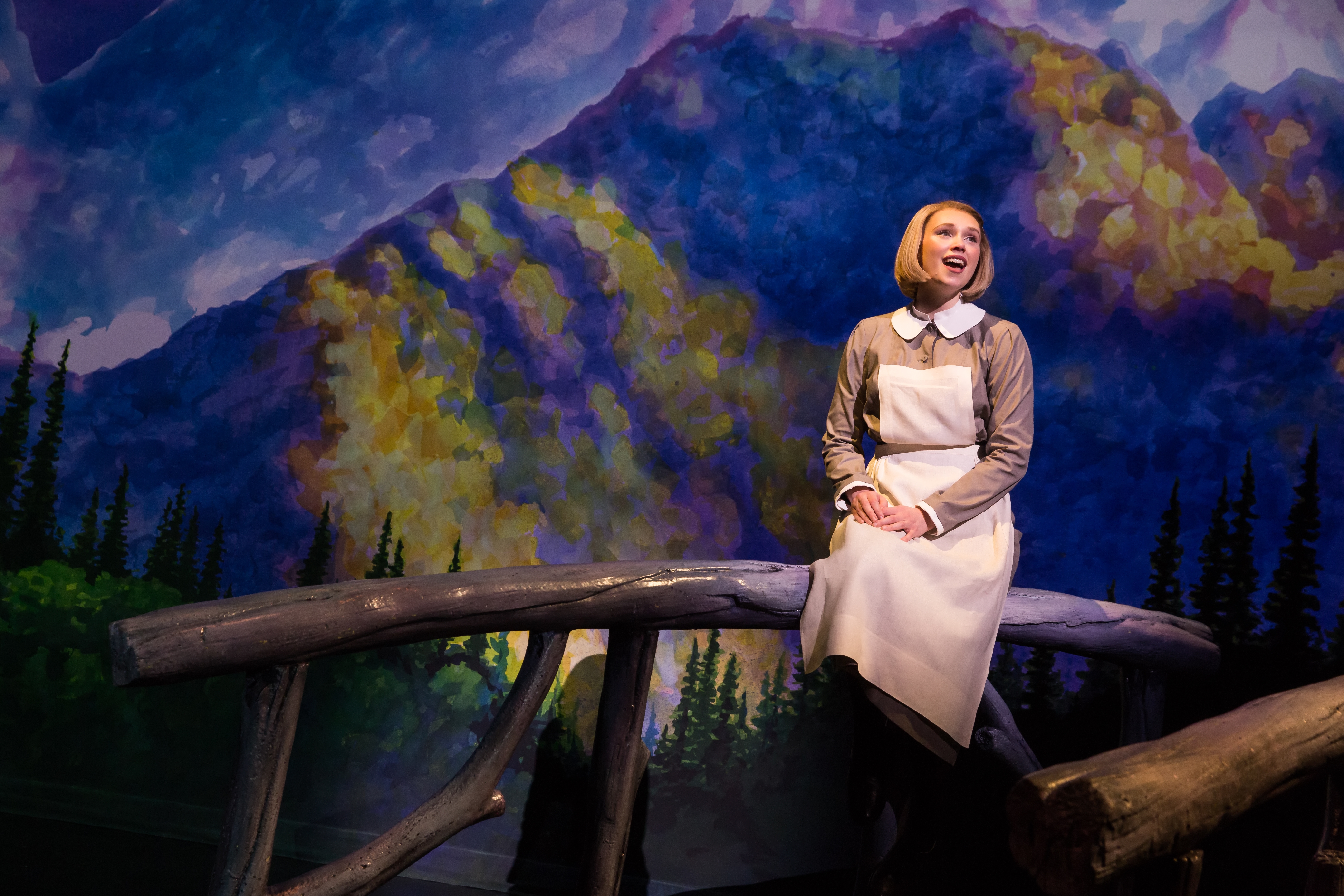Rodgers and Hammerstein’s “The Sound of Music” is so stacked with classic songs that even seeing them all listed together dizzies the head — “My Favorite Things,” “Maria,” “Do-Re-Mi,” “Sixteen Going On Seventeen,” “So Long, Farewell,” “Climb Ev’ry Mountain,” the title piece about the hills being alive with … well, you know.
Both the stage and screen versions of the musical are such treasured pieces of American popular art, the melodies so deeply embedded in our cultural DNA, the experience of watching it so universal, that there is not much news to deliver regarding the very good touring production of “The Sound of Music” that runs through Sunday at DeVos Performance Hall via Broadway Grand Rapids.
Yet here we are at a moment in history when all art has a political dimension whether it strives to or not. And something about watching “The Sound of Music” today feels relevant — urgent, even — for reasons that are hard to pin down.
Oh, wait, it’s all the Nazi stuff. I can’t say for sure, but the stomach queasiness stirred by watching the Von Trapp family sing in front of enormous swastika banners near the end of the second act probably is more pronounced in 2017 than it might have been a few years ago. One needn’t dig too deep to find modern parallels to a story of optimism turning to terror, and good people powerless against a swelling tide of tyranny.
If somehow you’re not familiar with the musical’s story, “The Sound of Music” finds an aspiring nun named Maria (played here appealingly by Charlotte Maltby) who is dispatched in 1938 to the Austrian mountain home of retired, widowed naval Captain Georg von Trapp (Ben Davis) to care for his seven children. She instructs them in music; much singing, hugging and merriment ensues. There is also a suspense-free love triangle involving the captain, he wealthy socialite von Trapp is supposed to marry (Elsa Schraeder, played by Teri Hansen), and the woman he obviously will end up marrying (Maria).
While all this frolicking unfolds, darkness creeps into the periphery. There are mysterious phone calls from Berlin, urgent telegrams, vague talk of allies and enemies. When the Anschluss — Germany’s annexation of Austria — finally occurs, the characters swept up in the movement are either spineless opportunists like Max Detweiler (Merwin Foard) or are too naive to know better, like young Rolf Gruber (Austin Colby), whose quiet act of courage allows the von Trapps to flee the country.
Before they do, Captain von Trapp performs “Edelweiss,” a mournful ode to his Austrian homeland, which, incidentally, is now used as theme music “The Man in the High Castle,” an Amazon series that takes place in an alternate reality where the Axis powers won World War II.
“The Sound of Music,” directed here by Jack O’Brien, is a delight on every front, boasting a vivid production design and uniformly excellent performances. The show lives or dies by its casting of the von Trapp children, and the kids, aged 5 to 16, terrific here. As widely known as it is, “Do-Re-Mi” gets too little credit as a plot mechanism, since by the end of it, each of the seven youngsters has emerged with a distinctive personality.
There is comfort in the familiarity “The Sound of Music” offers, and fans new and old will find plenty to love about this production. Those of us who have spent too much time lately glued to newsfeeds will leave with fresh reasons to be troubled.
The Sound of Music
Broadway Grand Rapids
DeVos Performance Hall
Feb. 21-26
broadwaygrandrapids.com





